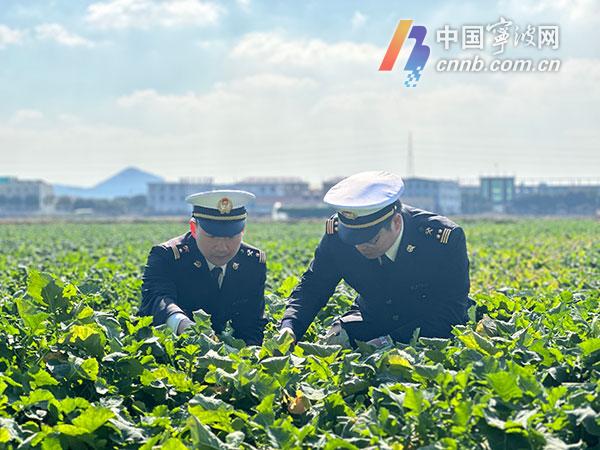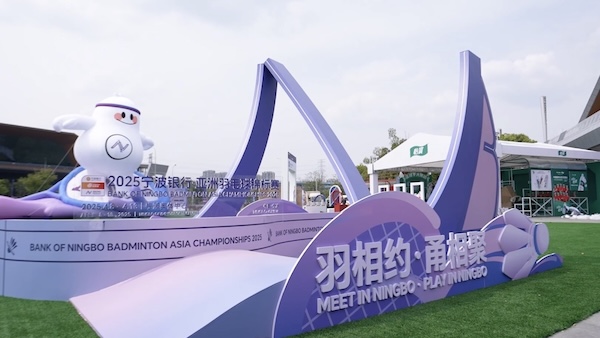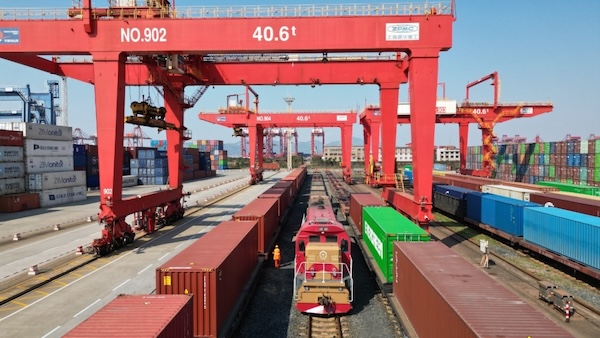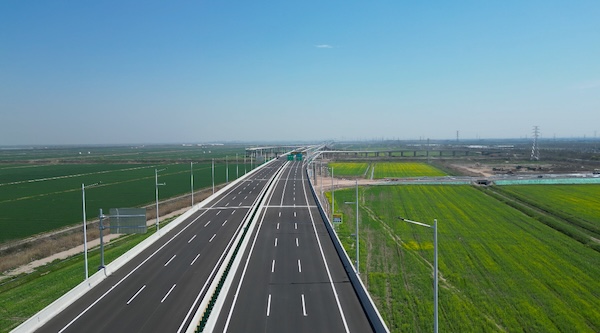Ningbo agricultural exports hit a new high in 2023

Two Ningbo Customs officials inspect vegetables to be exported. [Photo/cnnb.com.cn]
Ningbo achieved a milestone in its agricultural exports in 2023, surpassing 100 billion yuan ($13.95 billion) for the first time, according to official statistics from Ningbo Customs.
The city in East China's Zhejiang province exported 102.3 billion yuan worth of agricultural products, marking a 7.7 percent increase compared to the previous year. Among the most sought-after products were seafood, canned goods, vegetables, edible fungi, and tea leaves, with export values of 38.2 billion yuan, 11.8 billion yuan, 8.6 billion yuan, and 7.6 billion yuan, respectively.
Ningbo's green tea, cultivated in unique climate and soil conditions, experienced a surge in popularity, with last year's export value reaching 5.3 billion yuan, signifying a substantial 29.2 percent increase from the previous year.
In addition, the city's exports of tuna and malt for brewing hit 10 billion yuan and 4.5 billion yuan, respectively, marking a 9.1 percent and 14.2 percent year-on-year increase.
With a presence in over 150 countries and regions globally, Ningbo's agricultural products have three major export destinations - Japan, the United States, and South Korea. In 2013, exports to these three countries topped 23 billion yuan, 13 billion yuan, and 11 billion yuan, collectively accounting for 47 percent of the city's agricultural product exports during the same period.
The growing global interest in Ningbo's agricultural offerings is evident. Fu Zhenghua, general manager of Ningbo Dabu Foods Co Ltd, mentioned receiving inquiries from a Dutch client interested in fresh honey peaches, highlighting the increasing demand from Europe, a new market following the US, South Korea, Australia, and Japan.
To ensure the freshness and quality of agricultural product exports, Ningbo Customs has implemented various policies, including online issuance of inspection and quarantine certificates to facilitate the customs clearance process. Additionally, authorities have taken proactive quality control measures to enable compliance with the food safety standards of the importing countries.

 Ningbo seabird project seeks international volunteers
Ningbo seabird project seeks international volunteers  Jakub's journey: From shipyard to sea
Jakub's journey: From shipyard to sea  Badminton Asia COO applauds Ningbo
Badminton Asia COO applauds Ningbo 


